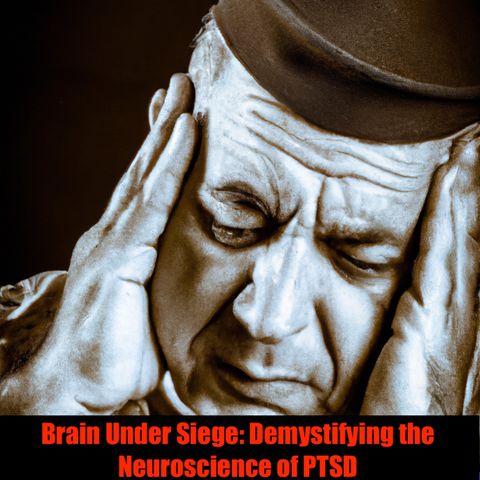Ibogaine shows promise

Descarga y escucha en cualquier lugar
Descarga tus episodios favoritos y disfrútalos, ¡dondequiera que estés! Regístrate o inicia sesión ahora para acceder a la escucha sin conexión.
Ibogaine shows promise
Esta transcripción es generada automáticamente. Ten en cuenta que no se garantiza una precisión absoluta.
Descripción
Ibogaine and PTSD: A Promising Path with Cautious Steps Several recent studies, including a particularly noteworthy one published in Nature Medicine in December 2023, have highlighted the potential of ibogaine...
mostra más- 88% reduction in PTSD symptoms: This is significantly higher than the effects of traditional PTSD treatments like medication and therapy.
- 87% reduction in depression symptoms
- 81% reduction in anxiety symptoms
- Improved cognition and overall functioning: Participants reported feeling more focused, motivated, and connected to others.
- Resetting the brain: Ibogaine may act as a "brain reset," reducing activity in areas associated with trauma and fear, and promoting neuroplasticity, the brain's ability to adapt and form new connections.
- Processing and integrating trauma: The psychedelic experience induced by ibogaine might allow individuals to safely confront and integrate their traumatic memories, leading to emotional healing and closure.
- Reduced inflammation: Some research suggests ibogaine may have anti-inflammatory properties, potentially benefiting conditions like PTSD, where inflammation is linked to symptom severity.
- Small sample size: Larger studies with longer follow-up periods are needed to confirm the long-term efficacy and safety of ibogaine for PTSD.
- Intense experience: The ibogaine experience can be physically and emotionally challenging, requiring careful monitoring and support in a controlled setting.
- Legal restrictions: Ibogaine is currently classified as a Schedule I drug in the US and many other countries, meaning it has a high potential for abuse and no currently accepted medical use.
- Ibogaine is not a cure-all, and its potential side effects and risks should be carefully considered.
- Combining ibogaine with traditional therapies may offer optimal results.
- Continued research is crucial to understand the long-term effects and refine treatment protocols.
- Ethical considerations and responsible use are paramount in exploring this promising avenue.
Información
| Autor | QP-2 |
| Organización | William Corbin |
| Página web | - |
| Etiquetas |
Copyright 2024 - Spreaker Inc. an iHeartMedia Company

Comentarios